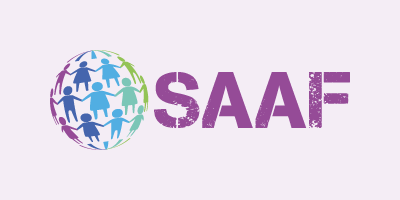There are certain truths we avoid saying out loud, not because they are unknown but because they are uncomfortable. Unsafe abortion is one of them. For decades it has been a neglected public health crisis claiming the lives of thousands of women each year, quietly, violently, disproportionately affecting women who are young, poor, rural or simply unlucky enough to be born into systems that do not prioritise their wellbeing.
As we mark Pan-African Women’s Day on 31 July, I am reminded that our greatest betrayal is not in what we lack, but in what we promised and failed to deliver. The Maputo Protocol, adopted over two decades ago, was a bold and necessary commitment to reproductive justice on this continent. Women are dying from unsafe abortions not because we lack the tools to save them, but because we lack the political will to trust them. Every delay in implementing the Protocol is a decision, one that tells African women their lives are negotiable, their rights optional. And that, we must no longer accept.
In Sub-Saharan Africa today, three quarters of abortions are unsafe.
For every 150 abortions, one woman dies. That is not just a statistic. That is a verdict. One that tells us that the lives of women and girls are still considered expendable. These deaths don’t have to happen. These are choices. The choice to criminalise abortion. The choice to stigmatise women. The choice to pretend that denying women access to safe abortion care is somehow morally superior. But here is the reality: restricting abortion does not stop it from happening. It only ensures that when it does, it happens in silence, in shame, and in conditions that strip women of their dignity, their health, and too often, their lives.
The World Health Organization defines unsafe abortion as a procedure for terminating a pregnancy that is carried out either by a person who is not trained to provide the service, or in a place that does not meet minimum medical standards, or both. In reality, it often means a young woman bleeding out alone on a dirt floor. A mother of three who arrives too late to a hospital that is already overcrowded. A girl who ingests toxic herbs because she has no one else to turn to.
And yet, Africa already has the answer.
In 2003, the African Union adopted the Maputo Protocol, a human rights instrument that recognises the right of women to access abortion under certain circumstances: when their life or health is at risk, in the case of rape or incest, or in the case of grave fetal anomaly. It was a landmark moment: an explicit recognition that reproductive autonomy is a cornerstone of health, justice, and equality. But 20 years on, most African governments have failed to fully implement this promise. Many continue to criminalise abortion entirely, or they erect impossible barriers that make access a legal right in theory, but an illusion in practice.
As a clinician, I am all too familiar with the consequences of this failure. Women present at our facility with incomplete abortions and heavy bleeding, or with sepsis and internal organ damage from objects forced inside their vaginas or anus. Some women will survive. Many women will not. And even if they do, they take with them an invisible burden, too: psychological scars created by the pain and fear and shame.
But it is not just the bodies that haunt me. It is the sense of injustice that underlies it all. The way that laws, written primarily by men, define what women can do with our bodies. The way that abortion decisions are removed from their contexts and defined only in moral or political terms, while the lived realities of women and girls who are forced to make impossible decisions are denied or erased. It is one thing to talk about life in parliament; it is another to hold the hand of a dying teenager as she slips away, because she could not access care in time.
The impact stretches far beyond the clinic, too. The economic cost of unsafe abortion is more than half a billion US dollars every year in direct health care costs alone, and nearly a billion more in lost household income due to long-term disability. But what is the cost of a daughter lost to sepsis? A mother buried too soon? What is the cost to a nation that silences half its population?
Our governments must decriminalise abortion, and commit to implementing the Maputo Protocol in full.
This includes broadening legal grounds and repealing punitive laws. It includes ensuring health systems can provide safe, respectful, affordable abortion care through hospitals, trained midwives, or self-managed care with medical support. It also includes investing in the conditions that reduce unintended pregnancies in the first place: comprehensive sexuality education, access to modern contraceptives, and a health system that respects women’s dignity.
We must support health workers with training, legal protection, and systems that allow them to provide care without fear or shame. And we must shift the public narrative, from silence and taboo to one grounded in empathy, science, and justice. Abortion is not a moral failing. It is not a sin. It is health care. And in many cases, it is a form of survival.
On this Pan African Women’s Day we must call for the decriminalisation of abortion, and investment in maternal health systems that put dignity, access and care at the centre. Reproductive justice needs more than words, it needs bold laws, sustained financing, and the political will to prioritise the lives of women and girls.
By Dr. Stellah Bosire – a lawyer, medical doctor and the Executive Director of the Africa Center for Health Systems and Gender Justice, a SAAF grantee partner in Kenya.
Image: Getty Images/Images of Empowerment.




